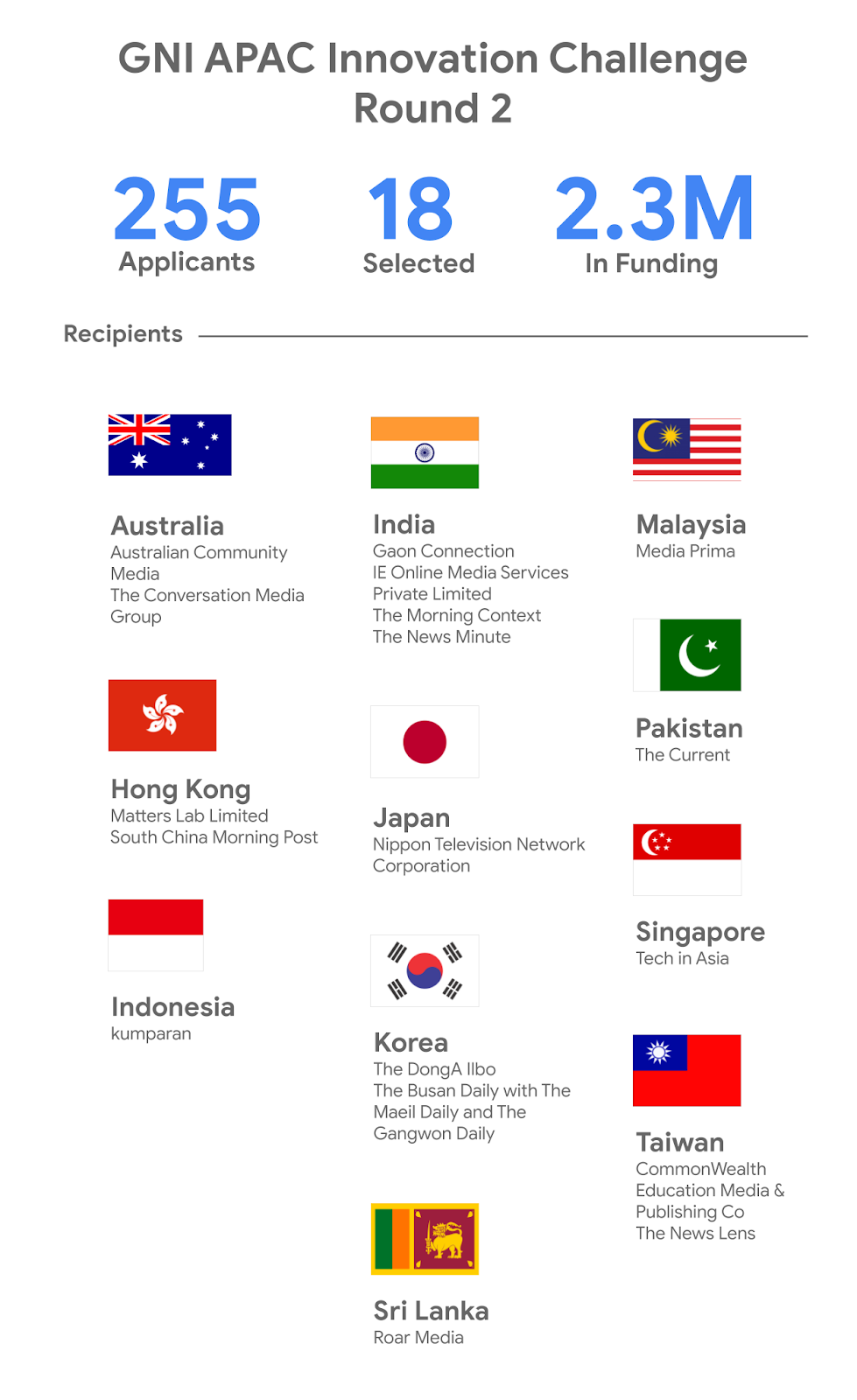Google gives $2.3M to 18 news organizations in Asia Pacific
Google announced today it is providing $2.3 million in funding to 18 news organizations in the Asia Pacific region, the latest in its ongoing effort to support publishers globally.
News organizations from 11 nations, including Australia, India, Pakistan, Hong Kong, Japan, and Taiwan are receiving the grant as part of Thursday’s announcement, the company said, which began accepting applications for the new innovation challenge fund in the region late last year.
The search giant said more than 250 organizations had applied for the funding. Those that are selected showed “variety and creativity of their ideas” to explore ways to increase reader engagement that would drive greater loyalty and willingness in readers to pay for content.
The $2.3 million innovation challenge fund is not evenly distributed among the 18 hand-picked organizations, a Google spokesperson told TechCrunch. The company additionally also offers mentoring and training sessions to these organizations, the spokesperson added.
Gaon Connection, a news organization based in Lucknow, one of the biggest cities in India, focuses on the issues that affect people in rural regions of the country. It is one of the four recipients to receive the grant from Google in India.
Veteran journalist Neelesh Misra, the founder of Gaon Connection, told TechCrunch in an interview that the capital would help his seven-year-old firm to pivot from a rural media platform to a rural insight firm.
“We have been looking to bring much greater statistical data depth to our work. We feel that if we could back the voice of rural India with surveys and insights, it would amplify their reach. We often hear from people in the village that they don’t have a say,” he said.
“I am a content person, but not familiar with tech. We have done the difficult battle first: We today have community journalists in more than 300 districts in India. And now those journalists will be able to use the platform that we will build because of Google funding to do surveys, record video, audio and text content, and crunch the data. This platform will give people in rural India a say so that policymakers and others in urban India have a better understanding of people in rural regions and their desire,” he said.

The Morning Context, another organization picked from India, covers internet, business, and chaos beats in the world’s second largest internet market. Earlier this month, the Morning Context also closed a seed financing round.
The Current in Pakistan covers “news that is woke and celebrates the fact that hey, you’re not supposed to know everything.” In Korea, the Busan Daily, Maeil Daily and Gangwon Daily that are the recipients of the funding are collaborating on real-time insights to create “customized experiences for their readers,” Google said.
Australian Community Media, another recipient, is developing a new platform for classified ads that will better support local newspapers and small businesses. Japan’s Nippon TV is using AR to bring its news archives to life.
“A strong Asia Pacific news industry has never been more important, and we’re looking forward to seeing the selected applicants put their ideas into action,” said Fazal Ashfaq, News and Publishing Lead for Google in APAC, in a statement.
Thursday’s announcement is part of Google News Initiative’s $300 million that it unveiled in May 2018. The company has so far run five innovation challenges globally: 2 in APAC, one in North America, one in LATAM, and one in Middle East, Africa, and Turkey.
from TechCrunch https://ift.tt/2y1PuU9
Comments
Post a Comment